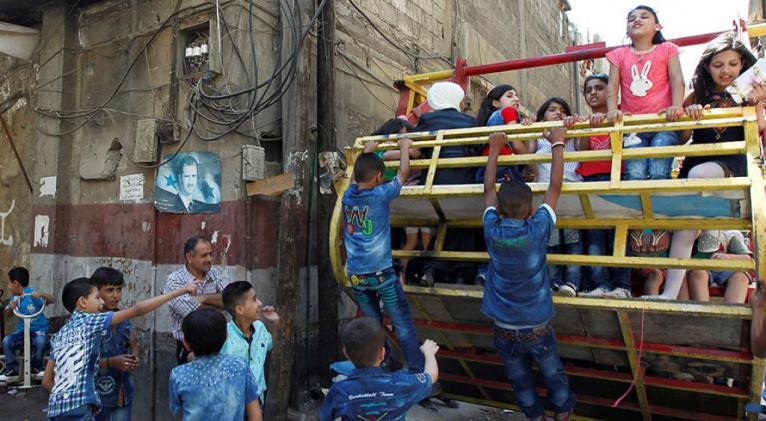ISIS & Al-Nusra not in Damascus: Kremlin on major outcome of Russia’s campaign in Syria
especiales

Russian airstrikes on radical Islamists in Syria over the past year have ensured that "neither Islamic State, nor Al-Qaeda nor the Nusra Front are now sitting in Damascus," Peskov said in a conference call with reporters.
He noted, however, that assessing the success of the ongoing operation is the task of military experts.
Responding to a question on whether the Russian leadership anticipated that the operation in Syria would last more than a year, Peskov said that no time frame was outlined when the initial decision to send aircraft to Syria was made.
“At the same time, the main goal was declared to help Syrians and the Syrian Army in the fight against terrorists, who at the start of [our] operation occupied most of the country,” he pointed out.
Peskov also commented on the recent reports by the Syrian Observatory for Human Rights, which earlier in the day said some 3,800 civilians had been killed as a result of Russian Air Force operations in the country.
“We do not view the information about what is happening in Syria from an organization stationed in the United Kingdom as valid,” Peskov said.
According to various reports, the total number of fatalities in the conflict ranges from 290,000 to 470,000 people. Over 4 million people have fled the country and some 6.5 million people are internally displaced. An estimated 13.5 million people inside Syria are in need of urgent humanitarian assistance, including 6 million children, according to the latest report by UNICEF.
Syria has been engulfed in civil war since 2011, with the government fighting a number of rebel groups in addition to radicals such as Islamic State (IS, formerly ISIS/ISIL) and Al-Nusra Front (Jabhat Al-Nusra), recently ‘rebranded’ as Fatah al-Sham.
Russia began its anti-terrorism campaign in the Middle Eastern country following a request from Syrian President Bashar Assad in September 2015. The operation was officially concluded in March. However, a part of the Russian forces remains in Syria to assist the country’s authorities with military and humanitarian tasks.
Earlier this week, Peskov said Russia will continue its military operation in Syria. He also expressed Russia’s readiness to continue the dialogue with the US regarding joint actions to combat terrorists in the country, despite the recent rift between the two co-chairs of the Syria Support Group, or SSG. Washington, which supports the so-called ‘moderate opposition’ in Syria, previously promised to separate rebels from the Al-Nusra Front terrorist organization, but has not yet lived up to that obligation.
Relations were also marred by the US-led coalition’s bombing of Syrian government forces’ positions near the eastern city of Deir ez-Zor on September 17. The incident dealt a serious blow to the Syrian ceasefire deal, which Moscow and Washington agreed to earlier this month, with the Syrian Army General Command at the time saying the airstrike “paved the way” for Islamic State (IS, formerly ISIS/ISIL) militants. Washington acknowledged the airstrike and even apologized for the mistake.
Also, on September 19, a UN humanitarian convoy consisting of 31 trucks was attacked while heading to Aleppo. According to the Red Cross, 20 civilians and one aid worker died as a result. Initial reports by the organization claimed the convoy had been targeted by an airstrike. The US State Department was quick to blame Damascus and Moscow for the attack. The Russian Defense Ministry, however, stated that Russian and Syrian warplanes did not launch airstrikes on the aid convoy, with Moscow saying that only militants who control the area had information regarding its location.















Add new comment